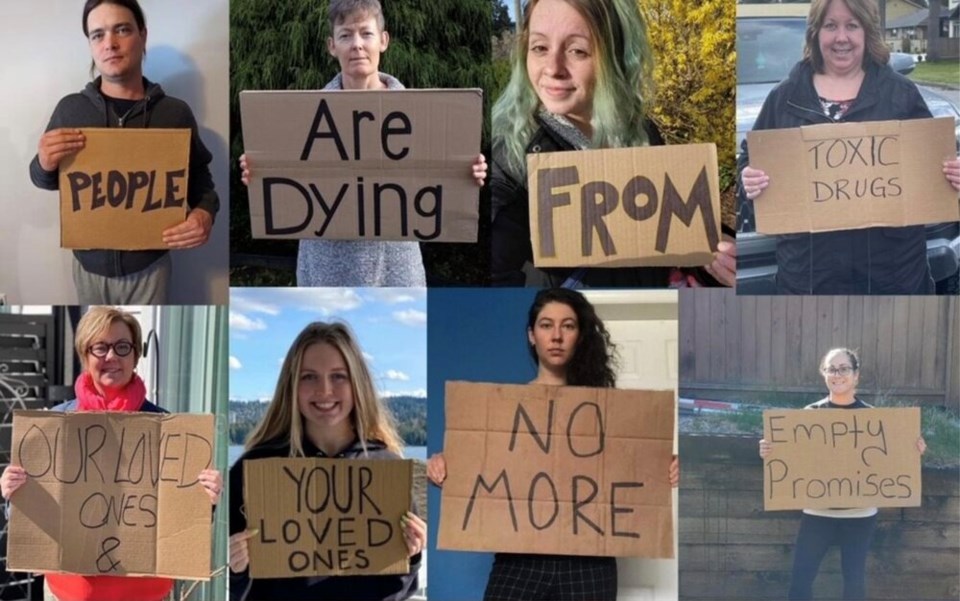Tri-City residents are preparing to take to the streets Wednesday to join thousands of Canadians calling for action five years after B.C. declared a toxic drug overdose crisis.
In those five years, illicit drug overdose deaths in B.C. have climbed to 7,072, surpassing the combined death toll due to homicides, suicides, car accidents and prescription drug overdoses.
The pandemic has only served to deepen the crisis — last year overdose deaths across the province spiked to new highs and 2021 is on track to be the deadliest year ever.
Men, particularly those between age 30 and 59, are dying at higher rates than others, making up 69% of all overdose deaths. Many of those deaths have been driven by fentanyl, an incredibly potent synthetic opioid up to 100-times more potent than morphine. Of the 1,716 people who died from an overdose in 2020, post-mortem toxicology reports found fentanyl in 85% of cases, up from only 5% in 2012, according to the BC Coroner Service.
The Tri-Cities has not escaped the lethal supply of toxic drugs. In 2020, 46 people died in the region due to an overdose.
The local rally, led by the TriCities Opioid Overdose Community Action Team, is asking anyone driving by the intersection of Pinetree Way and Lougheed Highway to honk to support an agenda looking to:
- decriminalize illicit drugs;
- secure a safer drug supply;
- increase in support for harm reduction programs;
- reduce stigma around substance use;
- and improve services for those with mental health issues.
The roadside rally runs from 3 p.m. to 5 p.m., April 14.
B.C. ‘MOVES FORWARD’ ON DECRIMINALIZATION
On Wednesday, the province said it is seeking to decriminalize personal possession of drugs in an effort to ward off the stigma of drug use.
The government said it’s seeking to do so by officially requesting a federal exemption from Health Canada.
"Through province-wide decriminalization, we can reduce the fear and shame that keep people silent about their drug use, and support people to reach out for help, life-saving supports and treatment,” said minister of mental health and addictions Sheila Malcolmson in a written statement.
Officials from the ministry and Health Canada have been working on an agreement sketching out how an exemption to the Controlled Drugs and Substances Act, which governs simple drug possession, would work.
Some of the hurdles include how to define simple possession, how much someone should be allowed to possess, and preparing police, as well as health and social services to support a move to decriminalize illicit drugs, according to a ministry press release.
The ministry also said an additional $45 million will be allocated over the next three years to health authorities to support overdose prevention sites where people can go to safely use drugs and gain access to a health team that can prescribe medications to treat addiction, among other services.
The money will be part of the 2021 budget.




